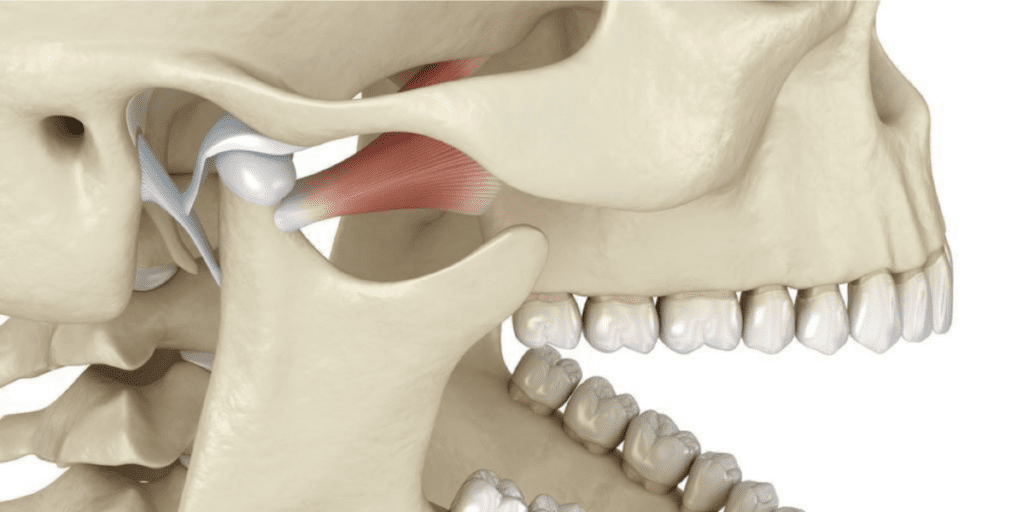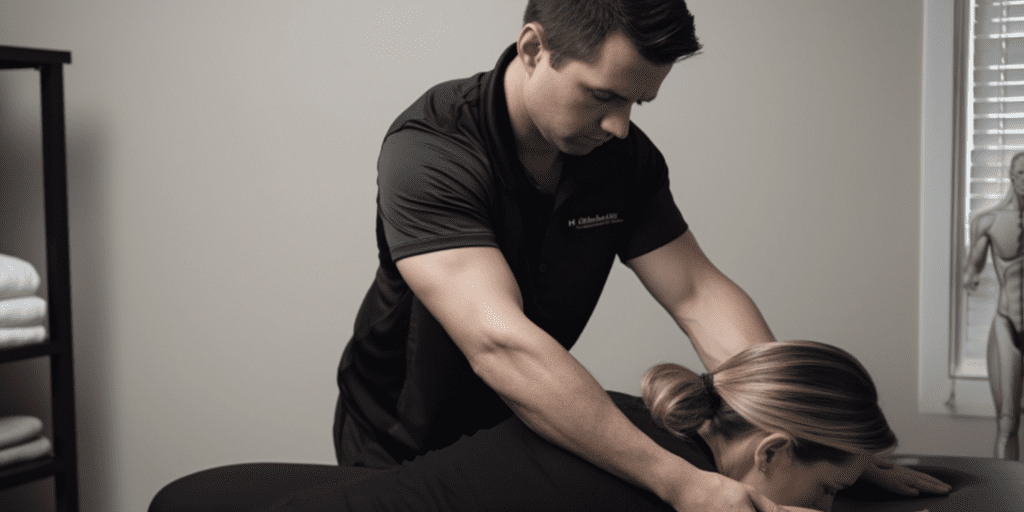Traditional vs. Chiropractic Treatment for TMJ Pain: Exploring the Differences
Do you experience discomfort or clicking sounds when opening your mouth or chewing food? You may be one of the ~10% of Americans with Temporomandibular Joint Disorder (TMJD). Now, most people have a vague idea of what TMJD is, but few know exactly what it is. You might be aware of some abnormal symptoms in your jaw movements, but assume there's nothing you can do about it. Well, here's some good news: chiropractic treatment for TMJD is a medication-free and surgery-free solution that reliably provides lasting relief!
Before choosing a treatment solution, you need to understand what you're facing and what options are available to you. We'll cover all of that and more below. Let's get into it.
Understanding TMJD - Diagnosis, Symptoms, and Causes
The temporomandibular joint (TMJ) is a crucial joint that connects your jawbone to your skull, located just in front of each ear. It consists of the mandible (lower jaw bone) and the temporal bone (skull bone), along with a small disc that acts as a cushion between them. This joint and the surrounding muscles and ligaments enable sliding and hinge-like movements for opening and closing your mouth. Basically, the temporomandibular joint is responsible for talking, chewing, and yawning.

When your TMJ becomes dysfunctional, it can lead to uncomfortable symptoms. The most common are jaw pain and clicking or popping sounds. But TMJ dysfunction can also result in:
- Ear pain
- Neck pain
- Facial pain
- Headaches
- Difficulty biting or chewing
- Tinnitus
- Dizziness
- Tooth sensitivity (unrelated dental to issues)
You might experience just one of these symptoms or all of them simultaneously. And their severity can vary from person to person, sometimes coming and going haphazardly or consistently worsening over time.
Several factors can contribute to the development of TMJ disorder. Stress is one of the most common triggers because it often involves clenching your jaw or grinding your teeth, which significantly strain the TMJ. Injuries to the jaw or the joint itself, such as from a sudden impact, can also result in chronic problems. Arthritis affecting the joint or the surrounding structures can be another cause.
Sometimes, seemingly innocuous habits, such as excessive gum chewing or nail-biting, are to blame. But ultimately, the exact cause of most individual cases of TMJ disorders is complex and multifaceted. Thankfully, treatment is a more straightforward affair.
Traditional vs Chiropractic Treatment for TMJD
When it comes to managing TMJD, conventional medical approaches often involve several treatments. One is pain medications to alleviate pain and reduce inflammation and muscle relaxants to relieve muscle tension and spasms in the jaw. These are often combined with physical therapy exercises to improve jaw mobility and strengthen the surrounding muscles. Finally, oral appliances, such as splints or mouthguards, may be recommended to help reposition the jaw.
However, many people have understandable hesitations about these approaches. Pain medications only provide temporary relief without fixing the underlying causes. Similarly, oral appliances are typically uncomfortable and don't do anything to address what's actually happening under the skin.
Chiropractic care is a fundamentally different approach to treating TMJD, targeting the misalignments or dysfunctions in the spine, neck, and jaw that are quite often at the root of TMJ symptoms. Chiropractic care for TMJD uses various techniques, including manual adjustments, soft tissue therapy, and exercises to fix underlying musculoskeletal issues.

For example, a misalignment in the upper cervical spine, which includes the top two vertebrae (C1 and C2), can affect the position and function of the temporomandibular joint. This can lead to muscle imbalances, increased tension, and altered movement patterns in the jaw, resulting in TMJ-related pain and discomfort. Additionally, misalignments or imbalances in the neck or jaw muscles can contribute to TMJ symptoms.
What Does a TMJ Chiropractor do During a Session?
A typical chiropractic treatment plan for TMJD begins with an initial assessment to understand your specific symptoms, medical history, and any underlying causes contributing to your condition. Then, a TMJ chiropractor will perform a comprehensive examination, which may involve X-rays and motion study analysis. Everything during that initial consultation revolves around gathering the necessary information to personalize a treatment plan for your specific case.
Once the initial assessment is complete, your chiropractor can proceed with treatment, which almost always involves manual adjustments and soft tissue manipulation targeting the jaw and upper vertebrae. TMJ chiropractors targeting muscles with soft tissue techniques work on loosening up and relaxing the masseter, the temporalis, and the pterygoid muscles. Beyond that, your chiropractic treatment for TMJ may come with at-home exercises and stretching recommendations to help strengthen the jaw muscles and improve overall jaw mobility.
Some of the first things that new TMJ patients always want to know are how often they need adjustments and whether or not the issue will ever be entirely resolved. Obviously, the answer to either question varies from patient to patient. However, the frequency of most TMJ-focused patients is 2-3 visits per week in the early stages of treatment. After a few months, frequency is usually reduced. Whether or not the condition is entirely resolved is harder to answer. But a near-total elimination of symptoms can be fairly common among patients who stick with treatments and lifestyle changes.
Get Relief from TMJ Chiropractic Care in Maple Grove
If you have any of the symptoms of TMJD, chiropractic treatment should be on the top of the list for treatment options. It's natural, reliable, and affordable. You have a few options in Maple Grove, but one stands out from the rest.
Dr. Tieri and his team at Total Spine Health and Injury Center have over a decade of experience treating patients in Maple Grove and Plymouth, Minnesota. It's one of the highest-rated clinics in the area and is always available for new patients. Schedule a consultation appointment today!
